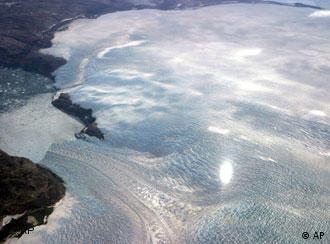 UNITED NATIONS - 24 April 2008 - Leaders of the world’s 370 million indigenous peoples are calling for the United Nations to include their voices in its future talks on climate change.
UNITED NATIONS - 24 April 2008 - Leaders of the world’s 370 million indigenous peoples are calling for the United Nations to include their voices in its future talks on climate change.
“Both the climate change and its solutions are concerns for indigenous peoples,” said Victoria Tauli-Corpuz, chairperson of the U.N. Permanent Forum on Indigenous Issues. Currently, the Forum, which includes 16 representatives — eight nominated by governments and eight by indigenous representatives — is holding its seventh annual meeting in New York. The meeting is being is being attended by more than 3,300 delegates from around the world.
“The indigenous peoples contribute the smallest ecological footprints on Earth,” according to Tauli-Corpuz, “but they suffer the worst impacts from climate change and mitigation measures, such as the loss of land and biofuel production.”
Despite representation from nearly 500 aboriginal groups worldwide, the Forum is not empowered to enact laws; it can only advise the Economic and Social Council (ECOSOC), a 54-member U.N. body, whose members are elected by the General Assembly every three years.
Last year in September, the General Assembly passed a historic resolution calling for the recognition of indigenous peoples’ right to control their lands and resources, but fell short of saying the “Universal Declaration on the Rights of the Indigenous Peoples” was legally binding.
Indigenous leaders they want both the governments and private corporations to incorporate the declaration into their national economic, political, cultural and environmental policies, so that indigenous people can participate in the process of development in a meaningful way.
More >>>






















